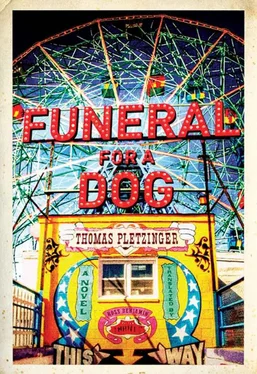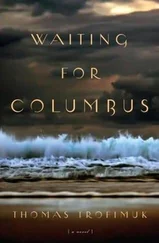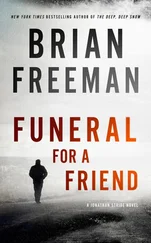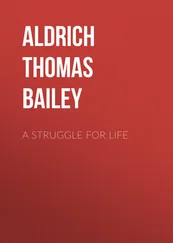(The screams of the animals)
In the afternoon the lake is smooth like oil. Tuuli’s prescription for me was to stay. My headache has gone away, I drank Tuuli’s Chiarella with all due caution (tepid water is good for the stomach). From the window: an oddly flat tourist steamer, its foghorn can’t be heard until a few seconds after a white cloud comes out of it (time can be seen). I’m sitting in front of my notebook again, I’m observing the steamer on its way across the lake toward Lugano. Svensson is no stranger than I am (we both write ourselves). He looks to the past, Tuuli looks to the future, I look at the ships. Everything that’s more than a hundred meters away exists in a different time (Elisabeth).
Profiles & Strangeness
In the autumn of 2004 I temporarily broke off my dissertation, because Elisabeth’s editorial department could use me (I wanted to be with her). In editorial meetings my wife thinks of me as Mandelkern, the freelance cultural journalist. My dissertation has been shelved, I haven’t added a word for months (the abortive ethnologist). Elisabeth and I have confused our life with our work. Participant observation is the reflexive gaze upon others and therefore upon oneself (Bronislaw Malinowski was nonetheless a ladykiller). I’m Mandelkern when I write my articles, my profiles, my reviews of strangeness. From time to time I’m paid reasonably for my work. Elisabeth is a woman with history and a future. She calls me Daniel when I don’t talk back to her. Why don’t you go ahead and do something with actual consequences sometime, she said, you need to be somewhat more decisive for this world (Elisabeth’s voice).
Are Svensson’s stories made up?
I put aside the notebook and pick up the binoculars (a mixture of conscience and anticipation). By the water: Tuuli and the boy are feeding the swan, Svensson is chopping wood with an ax, Lua is still breathing. Svensson keeps carrying new wood from the open shed, he stands amid logs and tinder (Svensson is building a pyre). As long as I hear the splintering, I can open Blaumeiser’s suitcase again. It takes me less than two seconds, the lock and Tuuli’s hairpin click into place. Next to all sorts of stones (flat, light, dark, angular, small, large) and a map of Brazil (little crosses at places with interesting-sounding names) lies Svensson’s stack of paper.
Salvation and Insight
Stories don’t help, Svensson has noted down. He wanted to write his story out of his bones, but didn’t finish it. New York, for example: I’ve read Svensson’s September eleventh, about Tuuli, Svensson, and Felix on the roof, stiff with uncertainty or fear. I’ve read about Kiki Kaufman and her camera, about Svensson’s escape attempts: he left Felix and Tuuli and escaped with Kiki Kaufman to Coney Island. I’ve seen the television footage of the World Trade Center countless times (there’s no getting around those images), but Svensson has written those days differently, he has sketched his New York as he wanted to see it. In the margin he noted in red handwriting: Kiki Kaufman — salvation and insight. What remain are a PricewaterhouseCoopers T-shirt and the photo in a green plastic frame, taken on a roof in Williamsburg, Tuuli pregnant, Blaumeiser laughing. What remain are words: Dreiser’s Sister Carrie and Frisch’s Montauk , Svensson’s manuscript in the suitcase.
Horrifying! Horrific!
From September 11, 2001, this image remains: my lathered face in the bathroom mirror of the apartment in Berkeley, when the telephone rings and the department secretary informs me that the Third World War is imminent (World War Three around the corner, she says, you better turn on the TV, Daniel, it’s horrifying! Horrific!). I’d been a doctoral student of anthropology at UC Berkeley for just under a year, my girlfriend, Anne, and I were sharing a small apartment. We’d thought we understood things: that our world was a barely comprehensible and yet somehow structured chaos of television and books and movies and newspapers and music. That this chaos of art, media, and bodies touched, of wounds dealt, would ultimately coalesce into a complete picture. Sorry, I said, I’m all covered in shaving cream (the dried foam on my face, the blood from the little cuts). Don’t, said the secretary, the beard looks good on you. My conference lecture was canceled half an hour later:
9/11/2001, 11:15 AM, Kroeber Hall, Authenticity in Documentary Film (D. Mandelkern, Hamburg/GER)
Later I sat half-shaven on the edge of the bed, my lecture scattered on the floor, the images of the collapsing towers before my eyes for the very first time. Anne came home from the university and shook me. She wanted to immediately pack our things and go back to Europe. In Astroland at this time Dirk Svensson and Felix Blaumeiser are worrying about Tuuli. They’ve smelled the smoke I watched on television. Here in Svensson’s house on the lake the unplastered walls and Kiki Kaufman’s pictures of ruins and the cameras in front of them. Anne took one of the first flights back to Zurich, I stayed another few months and sat alternately in front of the television and my dissertation (so much for the authenticity of images). I didn’t write another word and learned almost my whole manuscript by heart. I flipped through magazines and books and didn’t have a wet shave again until I met Elisabeth. Not out of superstition or trauma, but because she finds it more direct (it is actually more pleasant).
Svensson unpacks
Svensson was in the supermarket. As the mute swan flies in for a landing, there’s a slight breeze, the oleander sheds its flowers. The dog is still lying motionlessly by the water. Tuuli is sitting on the stone bench under the oleander, she’s smoking and observing her son and Svensson. Now and then a flower falls on the table or in her hair, now and then she says something and the boy turns around to her. Svensson puts his Los Angeles Lakers cap on Samy’s head (he adjusts it to the boy’s size). He lugs a few cartons ashore, vegetables, several boxes of bottles. The boy helps him unload, he gets a small, pink box with a light blue bow and puts it down next to Tuuli in the oleander flowers (pastry shop). The ailing dog lifts his head once again when Svensson kneels down next to him in the grass and buries his face in the fur on the back of his neck.
Stories people tell themselves about themselves
The Astroland manuscript is lying in front of me. Elisabeth is right: there’s a story here (Svensson’s colorful Third World, the story of the dog, the cockfight). I wonder whether something fishy’s going on. I’m an ethnologist, and Svensson writes a story about cockfighting, of all things? I remember Clifford Geertz’s “Deep Play”: “The cockfight’s function, if you want to call it that, is interpretive: it is a Balinese reading of Balinese experience; a story they tell themselves about themselves.” I can stay as long as Tuuli the doctor prescribes, she has diagnosed my curiosity. What’s still missing: Felix Blaumeiser’s death, the story of this last and most important death in Svensson’s stack of paper (Svensson’s guilt and Tuuli’s contribution). Decision: save from Svensson’s stories what I can. Copying it down is out of the question, I won’t have enough time. I’ll have to steal.
interference with the research plan
The blows of the ax on the shore break off. When I look out the window, Tuuli kisses the boy on his forehead and points up to my window. The boy nods, takes the pink box, which is waiting in the grass, kneels down next to Lua in the oleander flowers, and whispers something in his ear. Are they sending the boy to me, are they putting him in my care? Since I’ve been here, I haven’t seen Tuuli and Svensson talk with each other (why is Tuuli here?). I hurriedly close the suitcase (from my dissertation: “Communication and interaction with members of the ethnos under investigation can occasionally interfere with the original research plan; occasionally they bring it to a complete standstill. Therefore participant observation always entails balancing one’s own research objective with the conditions of the investigation and modifying it if necessary.”). By the time I’m back at the window, the boy is running toward the house with the box in his hand.
Читать дальше












